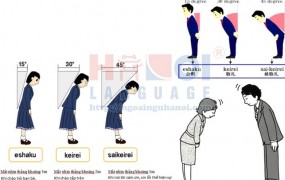Japan
LINK
Should we travel to Japan to work in agriculture?
Should we travel to Japan to work in agriculture?
Young people are being encouraged to work in Japan, but what are the best things to perform when they arrive? Do electronics, mechanical, food or agriculture... Many of you are concerned about these issues. The following text will provide you with a practical overview of Japan's agriculture business. The employment, salary, and working environment that Vietnamese employees have here.
Japanese agricultural laborers
Reality Farming in Japan is very different from the Vietnamese domestic farming approach. Vietnamese migrants are not welcomed into Japanese families to work in agriculture, but all firms, factories, producing or providing goods and food connected to agriculture are quite significant in Japan. In Japan, the agricultural model often includes cattle, agricultural product processing, gardening, and fruit cultivation, which can be done in greenhouses or outside. When admitting firms, however, they only use one of their own specializations as a recruiting criterion, which is frequently the enterprise's strength in business development.
For example, many firms produce cows as well as grow flowers, tubers, and fruits. However, when they travel to Vietnam to recruit, they will only select individuals who are qualified for a certain position. In general, they perform agricultural in Japan, but they are highly scientific and professional, unlike farming in Vietnam, and they do a variety of occupations.
The benefits and drawbacks of agricultural labor:
Advantage: Because agricultural labor in Japan is frequently continuous and uninterrupted, you may work a lot on both holidays and Sundays. Working does not require you to sit or stand in one place for long periods of time, so you do not get tired easily. You are often provided with food and housing because of agricultural businesses or living in the countryside, where food is plentiful and inexpensive, and housing is scarce, so the owner is often supportive. Some agricultural orders in Japan do not have to pay income tax, the work is particularly suited for Vietnamese people, and there are other benefits…
Disadvantage: Because Japan has three months of rather chilly winter, some orders must frequently be completed outside. Because the majority of them work in rural locations, several of my friends who wish to learn Japanese must go a long distance. Some orders are for animal production on farms, which are located distant from residential areas, so workers who wish to go to the market or supermarket must frequently travel a long distance...
Learn from your agricultural experience in Japan.
The Japanese method of cultivating flowers, fruits, tubers, and vegetables is quite professional; they normally do it all year round, unlike Vietnam. When the season is appropriate, they open the greenhouse to enjoy the natural environment, but when the climate or weather does not let it, they close it. They frequently cultivate veggies in layers, rather than just below ground like in Vietnam. They have formulas for the soil of each particular plant, and they have a very good manner of preserving after harvest. There are many varieties of vegetables, tubers, and fruits that can be stored after harvesting for a few months while maintaining the same quality. newly harvested.
All livestock farms in Japan have a system of machinery to serve from the smallest and simplest duties; the workers' primary responsibility is to run this farm system.
Livestock or gardening employment are excellent options for people who desire to create an agricultural system after returning home.
Looking at the big picture, it's clear that moving to Japan to work in agriculture offers several benefits over many other vocations.
Some individuals claim they don't enjoy travelling to Japan to work in agriculture because they believe that if you work in agriculture, you would be different from farmers in Vietnam. However, you are inaccurate; according to statistics, agriculture employs just approximately 2% of the Japanese population. Despite this, they offer enough high-quality food for more than 128 million Japanese people. What about agriculture in Vietnam? We have more than half of the population working in agriculture, yet we still don't have enough healthy food for everyone. Why is that? This question is likely to be answered by those who travel to Japan to export agricultural labor.






cherry-blossom-season-285x180.jpg)

